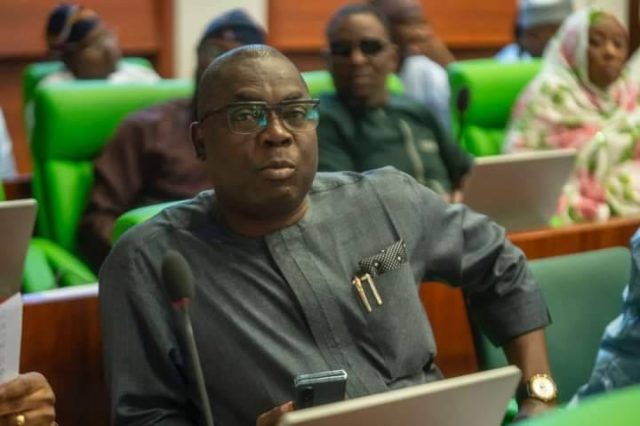The representatives fear the escalating conflict between the navy and pipeline security firms contracted by the NNPCL could defeat the move to check oil theft in the delta

The House of Representatives has resolved to wade into the increasing confrontation between the Nigerian Navy and private security firms contracted for pipeline security services in the Niger delta.
The House accordingly mandates its special committee on oil theft in the the Niger Delta to investigate the cause(s) of the conflict between the national security service and the non-state actors contracted by the Nigerian National Petroleum Company Limited (NNPCL).
This resolution was sequel to a motion titled “need for the House to promptly wade into the incessant cases of conflicts between the Nigerian Navy and private security outfits engaged by the Nigerian National Petroleum Company Limited to protect oil and gas assets.”
The motion was sponsored by Rep. Donald Ojogo (APC, Ondo) who noted that the Nigerian Navy is the statutory national security agency and an arm of the Armed Forces of the Federal Republic of Nigeria established with the sole purpose of protecting Nigeria’s maritime integrity and territorial waters.
He also noted that this sole responsibility covers the protection of Nigeria’s national assets including the nation’s oil and gas infrastructure across the water belts of the country covering inland, onshore and offshore waters.
“The Nigerian Navy has a history of commendable exploits within and outside Nigeria while on operations, making the nation proud,” he said, adding: “In its bid to take full advantage of human potentials across the nation’s oil belt, the Niger Delta, the Nigerian National Petroleum Company Limited (NNPCL), then as Nigerian National Petroleum Corporation(NNPC) in August 2022, firmed out intricate aspects of securing the nation’s oil and gas assets to some private security firms with deep knowledge of the areas in question.
“Also, this was done to protect such assets from vandals in order to stem oil theft, enhance productivity and ultimately engender higher production output to grow the nation’s economy through increased revenue. Such arrangements have recorded some positive results with regards to production output even as the 2024 budget estimates presented to the National Assembly by President Bola Ahmed Tinubu, GCFR, alluded to high expectations of further increase in output by benchmarking the same at 1.7m BPD.
“This high expectations that could only have been on the strength of an efficient, effective and robust collaboration and synergy of both the Statutory Security outfit, in this case, the Nigerian Navy, and custodians of delegated duties (private security firms) appear to be threatened by an unhealthy rivalry and incessant conflicts of operational responsibilities.”
Ojogo further expressed concern that the cases of unchecked open conflicts have almost reached an embarrassing level, including media brickbats between the Navy and the pipeline security firms, citing a recent reported case of exchange of gunfire between both parties on the coastal waters of Ondo State.
According to him, “if this trend continues, an unachievable oil output projection looms ahead of the 2024 fiscal year and that the implications of such development on the economy will be negative.”
The motion was unanimously approved when the presiding officer put the question.
